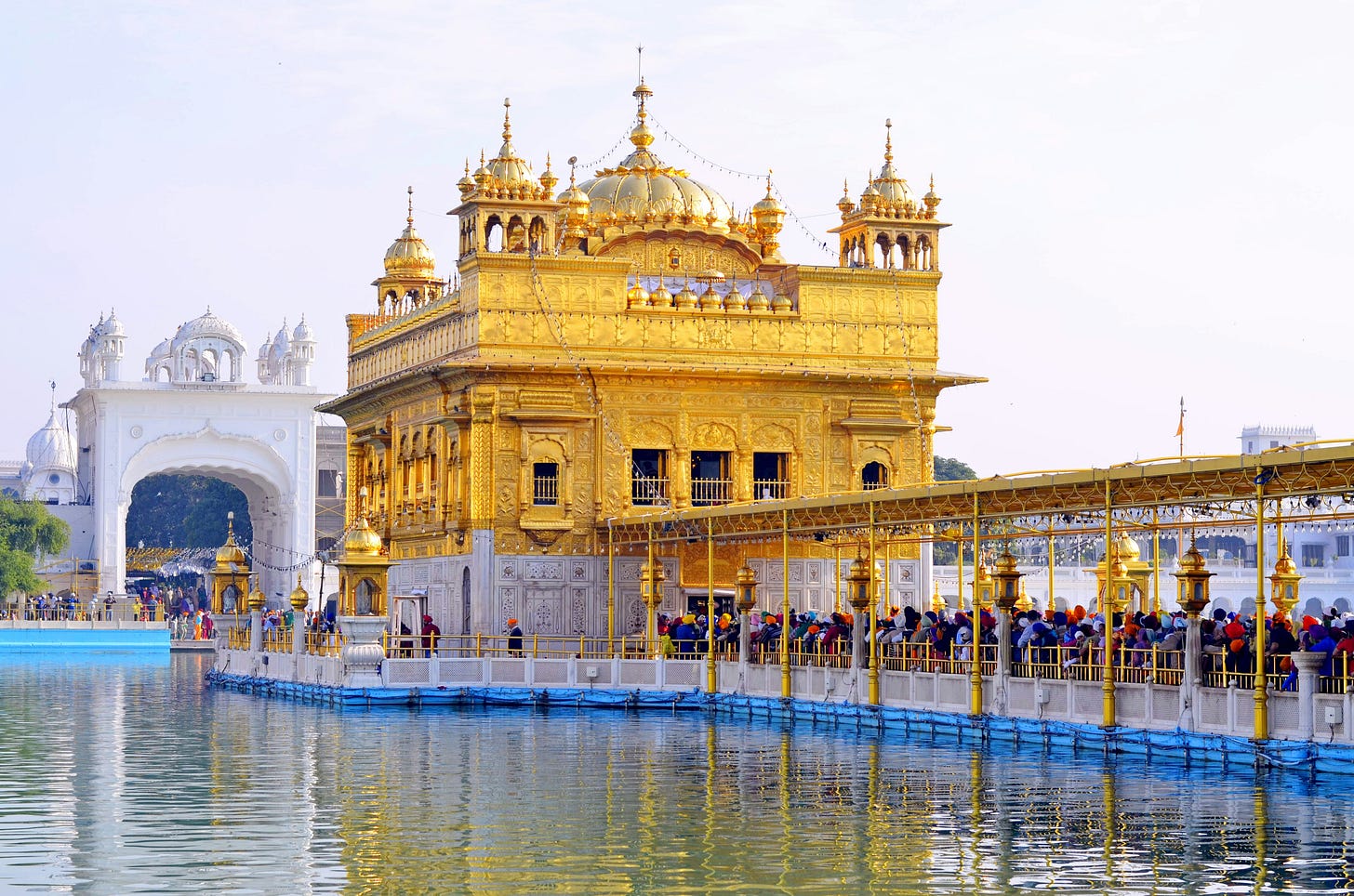Why Canada's Prime Minister is So Pissed off at India
The murder of a Sikh activist has strained relations between India and Canada for over a year--Trudeau finally openly cut ties.

India and Canada are no longer friends.
On Monday, Canada kicked out six top-ranking Indian diplomats, alleging that they were involved in the 2023 murder of Hardeep Singh Nijjar— a Sikh-Canadian activist. He was brutally gunned down by masked men in front of a gurdwara (Sikh place of worship) in Surrey, Vancouver on June 18, 2023. India did not hold back: its foreign ministry said it was expelling Canada’s acting high commissioner and five other diplomats in response.
India and Canada have been slinging diplomatic pellets at each other for a year now—canceling trade talks, suspending visa services, recalling diplomats, and engaging in other bilateral spats. And this week, it reached an all-time high when Canada straight up accused the Indian government of murdering Nijjar.
However, Trudeau didn’t just act out of the blue, he tried to talk to Modi about Nijjar’s death at the G20 Summit in New Delhi last year but was rebuffed.
Why is Nijjar important?
Nijjar was a self-proclaimed “Sikh nationalist who believes in and supports Sikhs’ right to self-determination and independence of Indian-occupied Punjab through a future referendum,” according to an open letter he wrote to the Canadian government in 2016.
The end of British colonial rule and the partition of the Indian subcontinent in 1947 was particularly traumatic for the Sikh community, as Punjab was divided between Pakistan and India. In 1948, the Punjabi Suba movement emerged, advocating for the establishment of an autonomous Punjabi-speaking Sikh state. The Khalistan movement, which means "pure" in Arabic, began to take shape in the 1970s as a Sikh separatist movement.
In 1984, Prime Minister Indira Gandhi orchestrated "Operation Blue Star," sending forces to raid the Golden Temple, Sikhism’s holiest site, where separatist activists were believed to be hiding. Official figures report that around 400 people were killed, while Sikh organizations claim the death toll was in the thousands. In retaliation, Gandhi was assassinated by two of her Sikh bodyguards, which sparked widespread anti-Sikh riots and brutal mob violence. Sikh families were murdered and maimed in their homes and on the streets.
The Khalistan movement has since been banned in India, but Nijjar was a prominent figure in British Columbia, working to rally support for a referendum in Canada advocating for the establishment of a nation called Khalistan, which would encompass parts of Punjab.
Nijjar immigrated to Canada in the 1990s and became a prominent figure in the Vancouver Sikh community. According to India’s Counterterrorism National Investigation Agency, he was associated with Babbar Khalsa International (BKI), a Sikh separatist group that India designated a "terrorist organization" in 1993. The Indian government claims that BKI is funded by Pakistan’s Inter-Services Intelligence (ISI) spy agency.
The politics behind Canada’s support for the Sikh-Canadian diaspora
India claims Trudeau is coming down hard on India because of the support he gets from the Sikh community, which began migrating to Canada in the early 1900s as laborers—logging in British Columbia and manufacturing in Ontario.
More Sikhs live in Canada making up two percent of the population than in India where they only make up 1.7 percent of the population. However that two percent holds significant political power in Canada. More Sikh politicians were elected to Canada’s House of Commons in the 2019 general election than those elected to India’s parliament the same year. Canada’s House of Commons has 18 Sikh MPs. Jagmeet Singh—the head of the New Democratic Party in Canada—is also Sikh.
Immediately after Nijjar’s murder, Canada expelled an Indian diplomat believed to be connected to the killing, a claim that India vehemently denies. Since then, Trudeau has accused India while simultaneously urging Prime Minister Modi and his government to acknowledge their involvement.
After a frustrating year of India denying any accountability, the Royal Canadian Mounted Police stated this week that it had found evidence of the involvement of Indian agents “in serious criminal activity in Canada,” including links “to homicides and violent acts” and interference in Canada’s democratic processes, among other things.
“Nijjar had publicly spoken of the threat to his life for months and said that he was targeted by Indian intelligence agencies,” according to a statement from the World Sikh Organization. “The Canadian Security and Intelligence Service (CSIS) and local law enforcement were aware of the threat to Nijjar, as well as other Sikh activists in Canada, and had been alerted of this danger from multiple sources.”
LEARN MORE:
Understanding Canada’s fight with India over a Sikh Activist (NYTimes gift link)
Why India’s warnings about Sikh separatism don’t get much traction in the West (NPR)

